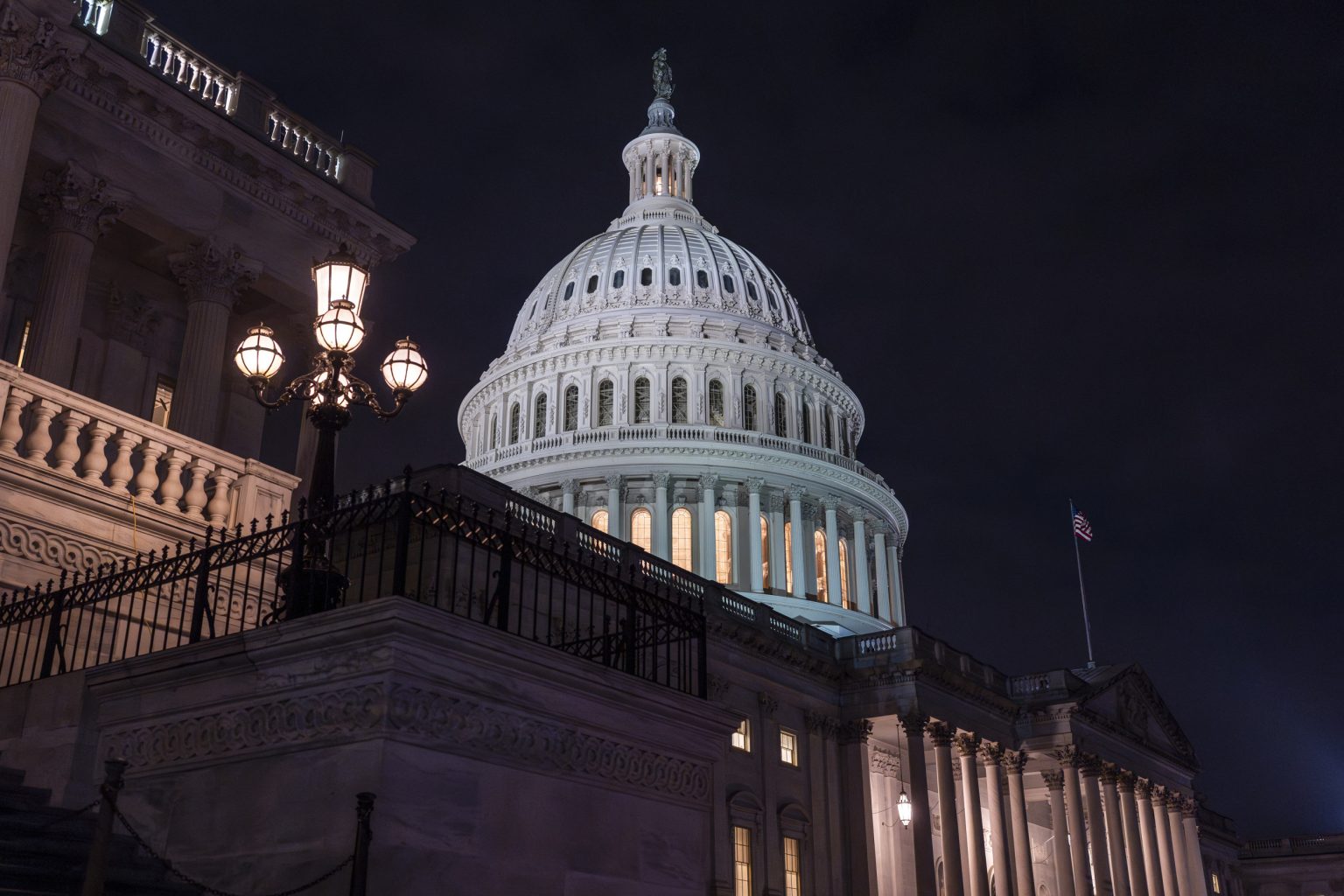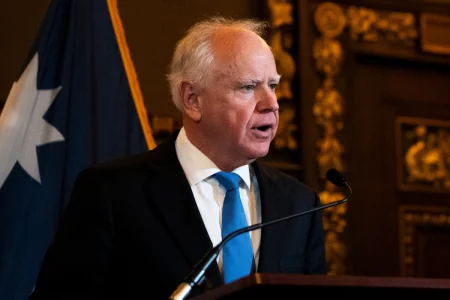The United States government narrowly averted a shutdown on Friday night as the Senate passed an eleventh-hour funding bill, concluding a week marked by political turmoil and high-stakes negotiations. The final vote of 85 to 11 reflects a bipartisan effort to stabilize government operations, albeit temporarily, until March 2025. This successful outcome followed a dramatic series of events initiated by President-elect Donald Trump and billionaire Elon Musk, whose intervention almost derailed the entire process. Their insistence on tying the funding bill to a suspension of the debt ceiling created significant friction within the Republican Party and ultimately led to the failure of an earlier proposal.
The initial bipartisan continuing resolution (CR), designed to prevent a government shutdown, unexpectedly became a point of contention when Trump and Musk publicly denounced it. Their opposition stemmed from the exclusion of a provision suspending the debt ceiling, a move they believed should be addressed under the current administration rather than being passed on to the incoming Trump administration. This unexpected intervention threw the House of Representatives into disarray, forcing Republican leaders to scramble for a new strategy while baffling senators from both parties. The original CR, which enjoyed broad support and was on the verge of passage, was suddenly withdrawn, demonstrating the considerable influence wielded by Trump and Musk even before officially assuming their respective roles in the new administration.
The first attempt at a revised funding bill, incorporating Trump’s demand for a two-year debt ceiling suspension, met with strong resistance from both Democrats and a significant faction of Republicans. The measure, requiring a two-thirds majority to pass the House, fell considerably short, failing by a vote of 174-235. This defeat highlighted the growing divide within the Republican Party, with 38 members defying Trump, Musk, and House Speaker Mike Johnson. This rebellion against their party leadership underscored the difficulty of navigating the complex political landscape and the precarious balance of power within the House.
The eventual success of the funding bill hinged on the Republicans’ concession to remove the contentious debt ceiling suspension. This compromise paved the way for a decisive vote in the House, with the final CR passing by a margin of 366-34. The overwhelming bipartisan support for the revised bill, with nearly unanimous Democratic support and a majority of Republicans voting in favor, signaled a collective desire to avoid a government shutdown and maintain stability. The remaining 34 Republican dissenters likely represent the persistent influence of Trump and Musk within a segment of the party.
The chaotic week leading up to the final vote underscored the significant influence of non-governmental figures like Elon Musk in shaping political decisions. Musk’s planned co-directorship of the Department of Government Efficiency with Vivek Ramaswamy next year, coupled with his vocal opposition to the initial funding bill, exemplifies the blurring lines between private enterprise and governmental affairs. His public pronouncements on social media platforms, urging Republicans to reject the initial CR, contributed significantly to the upheaval in the House and the subsequent delays. This episode highlights the potential for powerful individuals outside of elected office to exert considerable sway over legislative processes.
The passage of the funding bill, while averting an immediate crisis, merely postpones the inevitable confrontation over the debt ceiling. By removing this contentious issue from the current bill, lawmakers have effectively kicked the can down the road, setting the stage for another potentially fraught political battle in the near future. While the temporary reprieve provides a window of opportunity for both parties to regroup and strategize, the underlying fiscal challenges remain unresolved. The next few months will likely be dominated by negotiations surrounding the debt ceiling, and the outcome of these discussions will have significant ramifications for the economic stability of the country. The successful passage of the funding bill, although a significant achievement in itself, represents only a temporary solution in a larger, ongoing fiscal debate.














